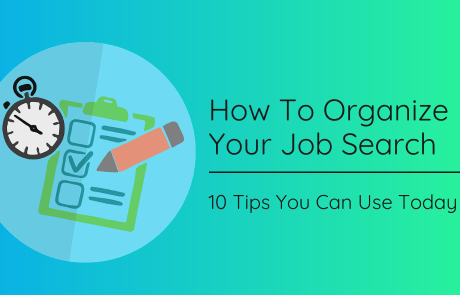
There’s a saying that goes, “It’s not who you know, it’s who knows you and what you can do.” And in today’s world, online networking through social media channels provides an invaluable way for you to gain that type of visibility.
You can use online networking to build relationships with colleagues, other influencers in your industry, potential employers, recruiters, and anyone else who could become a valuable career resource in the future.
Online networking is about building relationships and potentially lucrative connections with different types of people via different social media channels, such as LinkedIn, Twitter, and Facebook.
Even though networking via social media is done online and not in person, it’s still all about genuine engagement – creating relationships, interacting with professionals who share your interests, building your following and online image, and connecting with your online audience.
Conventional business wisdom holds that without a comprehensive online strategy, your business is like a shark that stops swimming: It sinks slowly and lifelessly to the bottom of the sea. Online presence is critical to commercial success.
The same can be said for your career and job search success. If you don’t engage in online networking as a way of expanding your connections, building your personal brand, and advancing your career, all prospective employers will be left with is your resume sent along with the resumes of the masses of other job searchers. Lost in a sea of candidates, your resume will sink slowly and lifelessly to the bottom (in this case, the bottom of the stack and, ultimately, the wastebasket).
Networking of any type, in-person or online, is the most effective tool for expanding your circle of contacts and, with it, your sphere of influence. Here then, are 10 online networking tips to help you land a new job and build the dream career you want.
10 Must-Know Online Networking Best Practices for Job Hunters
1) Give as much as you take and provide value to your audience.
Building a strong social online network can benefit your career in many ways. But, it’s important to know that it’s not a one-way street: you should give as much as you take and provide value to the people you are connected with. This means helping others, providing solutions, making recommendations, and introducing connections. You can also use social media to share ideas, seek feedback, and increase your credibility.
2) Work on building your network before you need your contacts.
Online networking lets you connect with the billions of people all over the world who are online every day – people you’d never meet any other way. You can also connect on social media with people you’ve met offline and want to build further relationships with.
Too often I see individuals limit themselves by not including certain people in their network because they’re not perceived to be a source of potential job leads. Just remember that you know people who know people who know people. The more people you interact with, the more people will know what you can do. The larger the circle of contacts, the greater the likelihood that people you don’t even know may become interested in what you have to offer, possibly leading to a potential job opportunity from a completely unexpected source.
3) Set goals that align with your career plan and job search strategy.
Plan the plan. Formulate your online networking strategy. Determine which social media platforms you’ll be using. What industry/career/profession interests you and which social media modalities are they likely to use? Honestly assess whether you’re comfortable with online networking. If you’re not, you probably shouldn’t set any goals for social media interaction that will be a struggle for you to meet (don’t be afraid to step out of your comfort zone but do minimize opportunities for stress and negativity). Identify and refine your goals so that you can focus your efforts, making the most of your limited time and resources.
4) Aim for quality connections on the social media platform(s) that support your goals over minimal visibility on lots of different platforms.
It’s important to establish which social media platforms you’ll focus on so you don’t waste time building social profiles that don’t help you achieve your online networking goals. Remember, it’s okay to be selective. Not every social media platform is right for you and your goals. It’s better to have quality connections on one platform that supports your goals than minimal visibility on a bunch of different platforms.
5) Make your online profiles professional representations of who you are, what you stand for, and the value you offer.
First impressions matter. Just like you would dress professionally for a networking event, your social profiles need to be a professional representation of who you are and what you stand for. Think of your online profiles as an in-depth calling card. Your profile should reflect your personal brand and career focus. Anyone who visits your profile should get an immediate sense of who you are, what you do, and the value you offer.
6) If you want to get noticed, post and share consistently.
Be a valuable part of the social media community. Remember online networking is about forming genuine connections. Be sure to share your expertise and be an active contributor. Don’t be one that’s always asking for something from others. This also helps keep you top of mind and others are more likely to view you as an expert.
But, while it’s a great idea to post consistently and regularly, you should also avoid being overbearing. Stick to posting 1-2 times per day. Otherwise, your followers may become annoyed and you risk losing those connections.
7) Reciprocate and nurture your connections.
Do something for someone else with zero strings attached. Besides being a nice thing to do, more often than not the person you’ve done something for will return the favor. Many times this means introducing you to some of their contacts. This is a sure-fire way to grow your online network in a personal way. The added bonus here is that as you introduce your connections to each other, you’ll start to be viewed as an expert by your network.
8) Personalize everything.
When reaching out to new professional contacts, make sure your method of communication is always personal by using their name and including a little about them where relevant. You might find it tempting to use the default messages on LinkedIn for making new connections, but try to avoid them and send a personalized message instead. This creates a more genuine connection.
9) Listen and observe; avoid making it all about you.
Just like with in-person networking, avoid dominating the online networking space by talking only about yourself and your career. Try your best to “listen” to what others are saying online so you can make a genuine contribution to the discussion. This way, you can provide a meaningful suggestion, solve a problem, and identify key influencers. This will strengthen your connections because you are giving more than taking.
10) Always keep it professional.
There is a fine line between being overly formal or informal when you use social media to network online. Your goal should be to represent yourself in a professional way while remaining likable. It is called “social” media after all. You can be professional without being “stuffy.” Also, be careful with what you share. Avoid sharing or posting about religion or politics, unless that’s your topic of expertise and a core part of your career.

Originally published on this blog on October 28, 2013, this post has been updated and republished with information on networking online using social media in 2021 and beyond.









